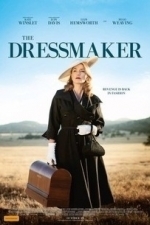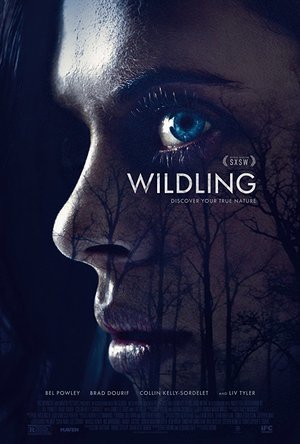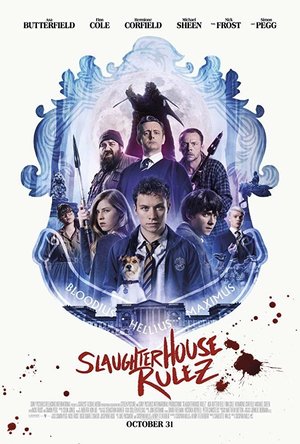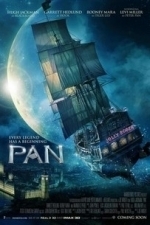Darren (1599 KP) rated The Dressmaker (2016) in Movies
Oct 14, 2019
Performances – Kate Winslet is great in this leading role, bring us a character filled with guilt who is just as happy to show a positive confident side to the people in the town. Judy Davis is a scene stealer in this film, being able to get the laughs required to make her the most memorable part of nearly ever scene she is in. Liam Hemsworth is at the best he has ever been, which is great to see him breaking away from the roles that aren’t working for him. Hugo Weaving gets to have a lot of fun in his role too.
Story – The story follows a woman who returns home to get revenge on the people that forced her to leave, only to learn that town has just as many secrets within the walls, that revenge is just about letting them out. We get to see how a town can turn enough heads to make everything seem like nothing is wrong, only for a curse to be waiting to be lifted if it isn’t inside somebody’s mind. We do get a lot of characters being introduced which can make things difficult to keep up with because we get plenty of little factors that do lead up to the personal conflict between the characters. this is a lot more fun of a story than I was expecting even though it is sprinkled with very dark moments.
Comedy – The comedy in the film does come the quirky nature of the events as they unfold, we have plenty of fashion related comical moments as well as small town gossip, which will get laugh along the way.
Settings – The film is set in a small rural Australian town, where everybody does know everybody else, we are filled with gossip and instant reactions to anything that goes on in the town too.
Scene of the Movie – Leaving town.
That Moment That Annoyed Me – Slightly too many characters.
Final Thoughts –This is a quirky dark comedy that is sprinkled by the elements of revenge, which does keep us wondering just what is the endgame of her decision making process.
Overall: Dark quirky comedy treat.
Darren (1599 KP) rated Wildling (2018) in Movies
Oct 14, 2019
Performances – Bel Powley is great in this leading role, she must go through a transformation and play the fish out of water figure too. Brad Dourif is just as creepy and you need him to be, always going to work in this type of role, with Liv Tyler being the cop that believes they know what will be right for victim, trying to be the role model figure.
Story – The story here follows a young girl that is raised in the woods, only to be released to discover who she really is and what she is capable off. This story does follow the traditions of seeing a young girl taken and raised in secret, before something happens to bring her into the real world, this side of things has been done before, it works and is an effective way to bring a stranger into a modern world. Where this story takes an interesting turn comes from the reason behind why she was being kept, we do get to see what she really is, but we don’t get to see if she is a threat to everybody else, we do get a couple of message in this film too that want to point out certain motives in hunting, but overall the story keeps us guessing and surprised by the truth.
Fantasy/Horror – This film does dive into fantasy when it comes to learn what Anna really is, we have ideas early on, but we are never truly sure what she will become, this does help with the horror side of the film because it keeps us waiting to see if there will be more bloodshed.
Settings – The film is set in a town surrounded by woodlands, this shows first where she was raised and where the people will welcome her, right back to where she feels more comfortable.
Special Effects – The effects are used to show the wounds and the look of the Wildling figure, there give us a creepy but natural looking creature and the blood isn’t afraid to be splashed about here.
Scene of the Movie – Home from the party.
That Moment That Annoyed Me – We could spend more time learn the normal human life.
Final Thoughts – This is a fun fantasy horror, it doesn’t hide the blood and is happy to give us a twist on the traditional storytelling.
Overall: Fantasy Horror 101
Darren (1599 KP) rated Rabid (2019) in Movies
Oct 14, 2019
Performances – Laura Vandervoort does give us a strong performance throughout, being able to balance the losing her mind and determined personality. Hanneke Talbot is strong too and the supportive friend, that does get to show the pushy personality her character has around Rose. Benjamin Hollingsworth does show us a strong friend or potential love interest in the film, while big names like Stephen McHattie and C.M. Punk make entertaining supporting appearance.
Story – The story here follows a young lady that sees her life turned upside down after an accident leaves her disfigured, only for an experiment procedure bringing out a new version of herself and an unwanted side effect along the way. This is a remake and one story that can remain similar is places, while bringing the social side of the film to new heights, the fashion world does make a wonderful backdrop for the story because it reflects the world that image needs to be fix with surgery. There are certain ways the story does feel weaker, that is mostly seeing how everything is spreading, which is important, but it doesn’t follow Rose, which is the important side of the story.
Horror/Sci-Fi – The horror side of the film comes from the real world situation that Rose goes through, with the accident before hitting the graphic violence of what is happening to Rose, which is also the sci-fi side of the film, the changes Rose goes through.
Settings – The film uses the fashion world as the main settings backdrop, it shows us just how important image is to Rose and the people close to her.
Special Effects – The complete highlight of this film comes from the practical effects, which look as graphic as they can, the injury suffered by Rose is one of the worst wounds you will see in this year’s horror films. We should give a shout out to the team (According to IMDB) Graham Chivers, Jeff Derushie, Anahita Loghmanifar, Emily O’Quinn and Omar Roessler
Scene of the Movie – The first reveal from the injury.
That Moment That Annoyed Me – We do move away from Rose, as the bigger problems spread around the city, we could have been given more fear from not seeing this, only hearing about it.
Final Thoughts – This is a practical effects masterclass in horror, it will use some of the best you will see this year even if the story is a modernised look at a cult classic.
Overall: Bloody graphic horror.
Darren (1599 KP) rated Slaughterhouse Rulez (2018) in Movies
Oct 14, 2019
Performances – Michael Sheen and Simon Pegg both look like they are having a lot of fun playing the stuck up British stereotypes which are here for the supporting roles. Finn Cole takes the lead in this film and he does all he can because this film does try to introduce too many different types of characters, not giving the lead enough time to shine, Asa Butterfield does well with his role too, getting to become a supporting character for once, instead of having the weight of the film put on him.
Story – The story here follows the time at a private British boarding school which sees monsters unleashed on the students, who must fight to save themselves. The weirdest way to describe this film would be to say this is the British boarding school version of ‘Attack the Block’, I say this because we are trying to play into a lot of stereotypes for added comedy to the situation. When we break down this alone we get to see how the British private school system comes off, with the student classes, the students believing they are better than anybody else and how the teachers are trapped in their own illusions. Add in the monsters which is what they feel like, which again disappoints along with one serious side to the story which is almost played out for jokes.
Comedy/Horror – The comedy only works if you find taking the piss out of upper-class English funny, this is what the film is set around getting laughs from. The horror is what the monsters do to the people, it would have been nice to get more time with them, once we do it does work well for blood splatter.
Settings – The film is set on the grounds of a private boarding school, this is put in an isolated location which does help make the film get added horror elements involved.
Special Effects – The effects in the film are mixed because it does feel like the thrown buckets of blood which for the budget isn’t what you want to see, though the creatures do look frightening at times.
Scene of the Movie – Monsters unleashed.
That Moment That Annoyed Me – Too much upper-class British jokes.
Final Thoughts – This is a fun enough horror comedy, it will get the laughs in places and has well created creatures.
Overall: British Ripped apart
Darren (1599 KP) rated Pan (2015) in Movies
Oct 14, 2019
Performances – Levi Miller as the young Peter is good because he shows us the innocence needed for this film while dealing with the emotional impact his life is having. Hugh Jackman does seem to be having a lot of fun in this role even if he is overacting at times. Garrett Hedlund just can’t catch a break, his performance is solid enough, though it does feel like he just wanted to be the next Han Solo. Rooney Mara again is solid, it looks like a role which meant something to her and will help her take on the bigger roles.
Story – The story is an origin story for Peter Pan and Hook, well it seems to be, Peter is in the human world where he is an orphan taken to Neverland to help fight in a war between the two sides who want control of the fairy dust, he works with Hook which is strange because he is a good guy. The film shows us why Peter never wanted to leave Neverland and just what is meant to him once he learns about his parent’s identity. When we look deeper at the story it does feel like a pretty safe story and by having Peter needing to learn his own identity before going on to be the character we know now. The problem comes from any moment of peril he is in or Hook we know they will make it out of there because we know their story is only just beginning. The additional problem comes from just how Hook is a good guy and doesn’t get given any moments to tease his villainous ways.
Adventure/Fantasy – The adventure side of the film is good because it shows a new life Peter could have away from the war his own reality is involved in, this does take us to the fantasy world of Neverland which only seems to have one unique animal in, but it has magic.
Settings – The film uses the colour tones well, we see the darkness which shows us how bleak Peter’s real-life is, while giving us the bright open world of Neverland to show the hope of a future.
Special Effects – The effects in the film are solid enough without looking as flawless as they should, though the overly ambitious nature to it all doesn’t help.
Scene of the Movie – Hook’s escape plan.
That Moment That Annoyed Me – Not filling enough of the blanks between the time period.
Final Thoughts – This is another cash-in on a franchise which feels overly done, it doesn’t capture the rue magic and only ends up confusing the time between the movies.
Overall: Magicless fantasy film.

Gratitude Journal 365 Pro- The Best Diary For Your Happiness
Lifestyle and Reference
App
5 stars - "This app is awesome! I love that the calendar is fllled with pictures of mostly my 4...

Notes Writer
Productivity and Education
App
NEW MAJOR UPDATE! +100 NEW FEATURES! Type, handwrite, annotate, draw, highlight, scan & record...

Mindfulness Daily
Health & Fitness and Lifestyle
App
Mindfulness is simple and proven effective; yet it is not always easy to find time to practice when...

Neo Travel Your Mind
Health & Fitness
App
This app takes you on a personal, poetic, and immersive voyage to approach this ancient practice of...

Mind Journey
Health & Fitness
App
The demands of the modern world on our time and mental resources are increasing steadily. Many of us...




